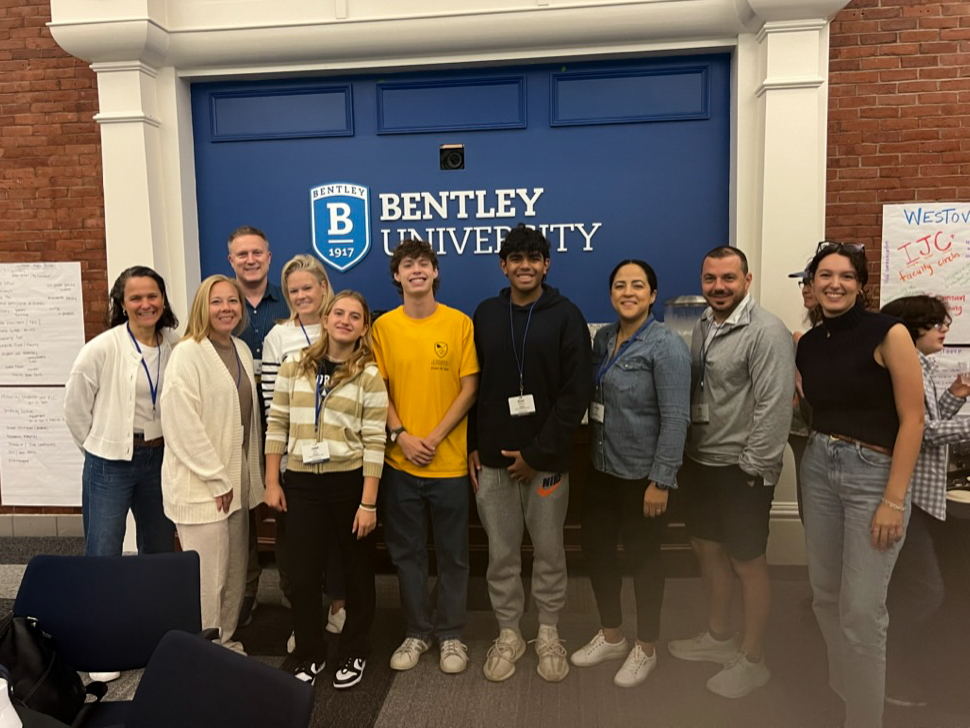Three days before the start of preseason, prefects arrived on campus to attend training for the Choate Leadership Institute (CLI). After moving into their dorm rooms, they packed their sleeping bags and traveled to Camp Hazen YMCA in Chester, CT. There, prefects received lectures on important information concerning school policies, participated in various activities that prepared them for the upcoming year, and bonded with one another.
For the past 15 years, Choate has been training prefects on, rather than off, campus before classes begin. However, difficulties arose when prefects would have to be pulled away from their sport for CLI training. This year, the prefects came earlier so that they could aid dorm advisers in preparing for the influx of preseason students. However, because certain facilities, such as the dining hall and health center, would be closed and the dorms would not be staffed so soon before the start of school, prefect training would have to take place off campus.
Director of Residential Life, Mr. Will Morris, had a key role in the coordination of the CLI training and the organization of the Camp Hazen trip. Although Choate hasn’t been to Camp Hazen in over a decade, Mr. Morris explained that it was one of the first places that Choate looked into due to “familiarity with the venue.” In the 1990s, Choate sent their student leaders to Camp Hazen for training during the first weekend of school. Ms. Mary Liz Williamson ’94, the day student adviser to the prefect program, recalls her experience at Camp Hazen fondly. “I’ll never forget that the theme of the weekend was ‘just say hi’. If you see somebody on the path, wave to them. It was a matter of reaching out and getting connected. Building relationships with underclassmen is an important part of the role as a prefect, and it all starts with a simple ‘hello.’” She also recalls bonding with her fellow seniors with early morning swims in the camp’s lake.
The prefect training was structured around five big ideas, the first of which was knowledge. Prefects were instructed on the various responsibilities that come with their position and were reminded of the school rules. In addition, they reviewed tools and resources available to students on campus, such as crisis intervention and the Assessment Team. Choate’s sexual misconduct policy was a highly emphasized point on account of its revisions over the summer.
James Rose ’18 said, “In general, I think the most important thing for the training this year, especially in regards to sexual misconduct, is that we’ve stopped beating around the bush. When you go from euphemistic explanations to blatant, full analysis, you’re able to better prepare people. I think they did a great job of that this year.”
In order to best educate prefects on how to handle sexual misconduct, a representative from RAINN (Rape, Abuse & Incest National Network) led the prefects in a training session upon their return to campus. Some students were surprised to find that they were not mandated to report a sexual misconduct the same way that faculty advisers are unless someone is in danger. Anna Deitcher ’18 said, “It was really helpful to know what I have to do in these kind of difficult situations and where I could use my best judgement.”
The second main idea was learning about key prefecting skills. These include self-awareness, which, in turn, includes self-care and cultural competency. This point also covered the ability to empathize with prefectees. During CLI, each prefect was trained to listen to their prefectees’ issues and concerns with open ears. Finally, the prefects focused on communication. Not only do they need to communicate the rules, but also act as liaisons between students and teachers.
The third and fourth main ideas were putting key prefect skills into practice and implementing them into various possible scenarios. Ms. Ashley Bairos, one of the heads of the prefect program, said, “Obviously, we can’t train them for every scenario that will happen to them as prefects, but we can give them the tools to make the best decisions when crises do arise and teach them how to handle issues they might not be comfortable with but ultimately have to deal with anyway.”
Prefects learned what to do if their prefectees are homesick, overtired, or have more urgent problems like depression or eating disorders. Mint Sethbhakdi ’18, a prefect for fourth and fifth formers, explained, “During training, I learned that prefecting will be harder than I thought. The emotional aspect of it didn’t really hit me until we had to practice out the scenes.”
The fifth and final focus of training was transferring information and skillsets received from the CLI training into specific plans for the upcoming year. Prefects collaborated with their dorm and day student groups to create a set of ideas to implement during their leadership in the upcoming school year.
Richard Lopez ’18, one of the two head prefects, said that he found the CLI training immensely helpful and enjoyed being able to bond with his fellow senior leaders. He commented, “We’re all a team. I think of all the prefects as just a group of kids who are trying to keep this campus safe and emotionally and physically healthy.”
To this year’s prefect group, Dean of Students, Mr. James Stanley said, “‘You’ve taken on a really important role, and we have absolute faith in you. You’re going to be a great group, but just think for a moment about the trust that your parents put into the school to take care of you, and the trust that they implicitly put in your prefects when you were new. Now families are putting that trust in you as prefects. Just as your parents expect the school to take care of you, other parents are expecting you to take care of your prefectees.”
Prefects have a huge role in the wellbeing of the students. They are mentors and role models that younger students look up to. Prefect Bruna Paiva Oliveira ’18 said, “We’re not here just to enforce rules. We’re here to take care of and watch over the students and ensure that they’re comfortable being here, because we just want everybody to be happy.”





